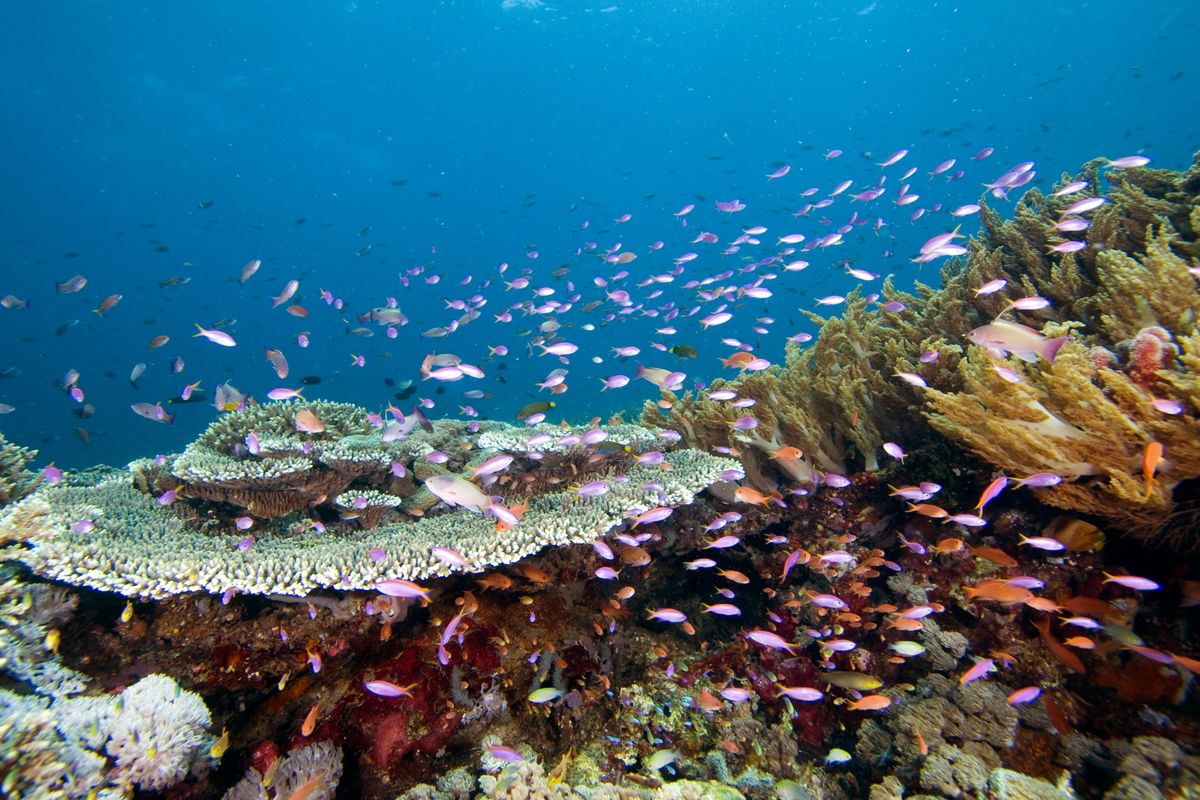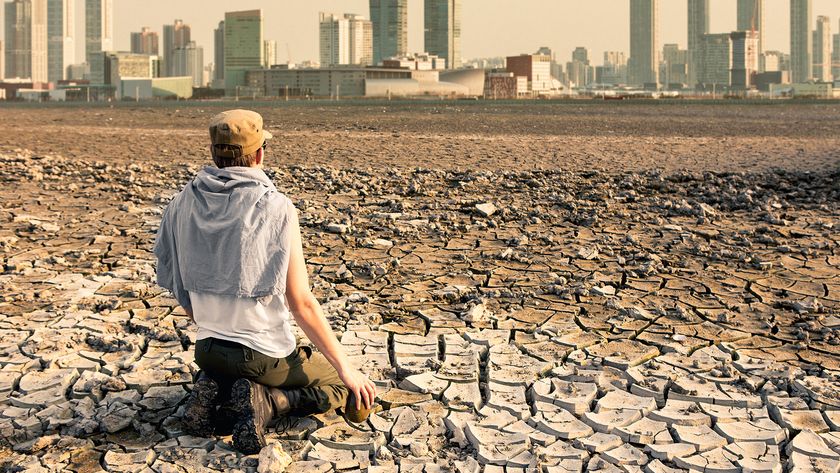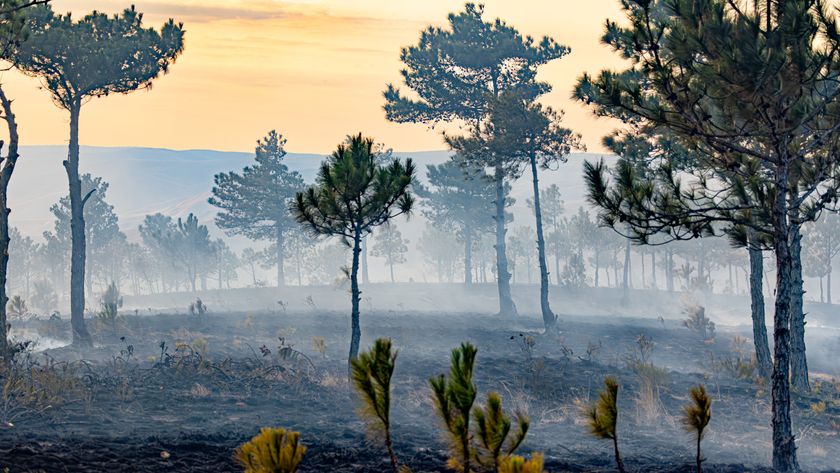'Coral Corridors' Sheltered Fish from Climate Change

The string of coral reefs connecting Indonesia and Australia has protected fish from the ravages of climate change for the past 3 million years, a new study suggests.
Corals thrive in the tropics, because the tiny organisms that construct reefs, called zooxanthellae, crave warm oceans and sunlight. But if local sea surface temperatures get too high or too low, or if sea level rises or falls (cutting off sunlight), corals will die.
Some 30 episodes of global warming and cooling in the past 3 million years have triggered massive coral die-offs around the world, according to earlier studies. For example, during hot climates, coral reefs disappeared from the equator.
The new study finds evidence for a coral reef survival zone during Earth's cold climate swings. When ice ages lowered sea level and sea surface temperatures, a "coral corridor" persisted from Indonesia and northeast Australia to the Maldives, Madagascar and the Red Sea, the researchers report. In contrast, only fragmented reef habitat remained in the Atlantic Ocean and central Pacific Ocean. [Colorful Creations: Incredible Photos of Corals]
The Indo-Australian region's well-connected coral reefs were a refuge for marine life that depend on reefs, according to the study, published today (May 29) in the journal Science.
Similar to wildlife corridors on land, the underwater coral corridors sustained fish biodiversity, said study co-author David Mouillot, a professor at the University of Montpellier 2 in France.
The researchers also found tropical fish diversity is still influenced by earlier climate-induced extinctions. "Past climatic extreme events have surprisingly more impact than current environmental conditions on the distribution of tropical fish on Earth," Mouillot told Live Science in an email interview.
Sign up for the Live Science daily newsletter now
Get the world’s most fascinating discoveries delivered straight to your inbox.
The researchers examined fish diversity, which refers to the number and variety of species. The team focused on three fish families — damselfish, wrasses and butterfly fish. Damselfish, in particular, have a low tolerance for swimming long distances when young, so fragmented habitat is a barrier for diversity in these fish.
Fish at Indo-Australian coral reefs are incredibly rich and varied, they found. Biodiversity of the three fish families analyzed drops with distance away from the reefs, a lingering effect of the protection provided during past climate changes, the researchers report.
The findings suggest that coral is highly adaptable to changing climate conditions, Mouillot said. However, the effects of past warming need to be better analyzed to predict the future of "such fragile systems," he said.
Email Becky Oskin or follow her @beckyoskin. Follow us @livescience, Facebook & Google+. Original article on Live Science.












